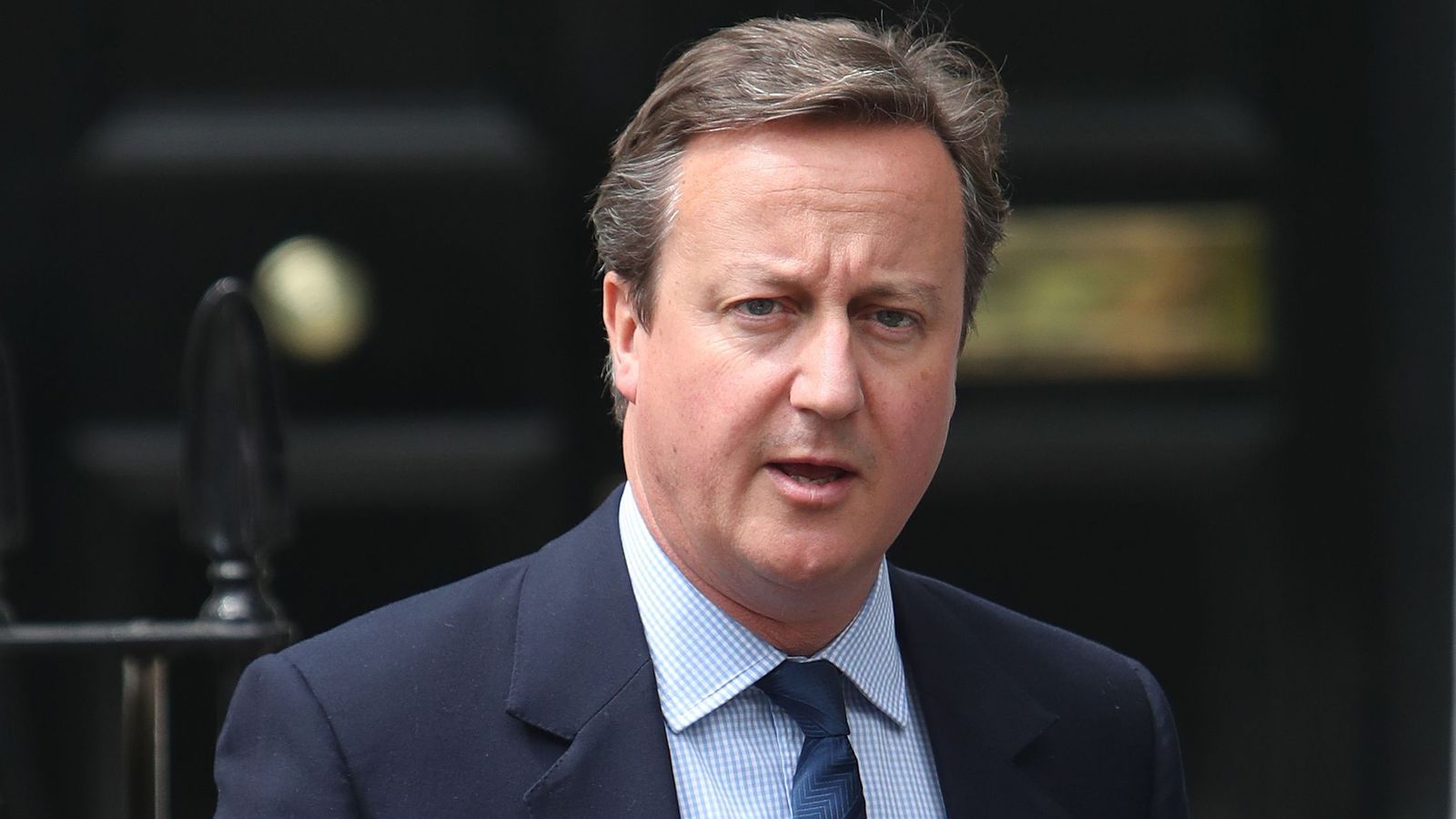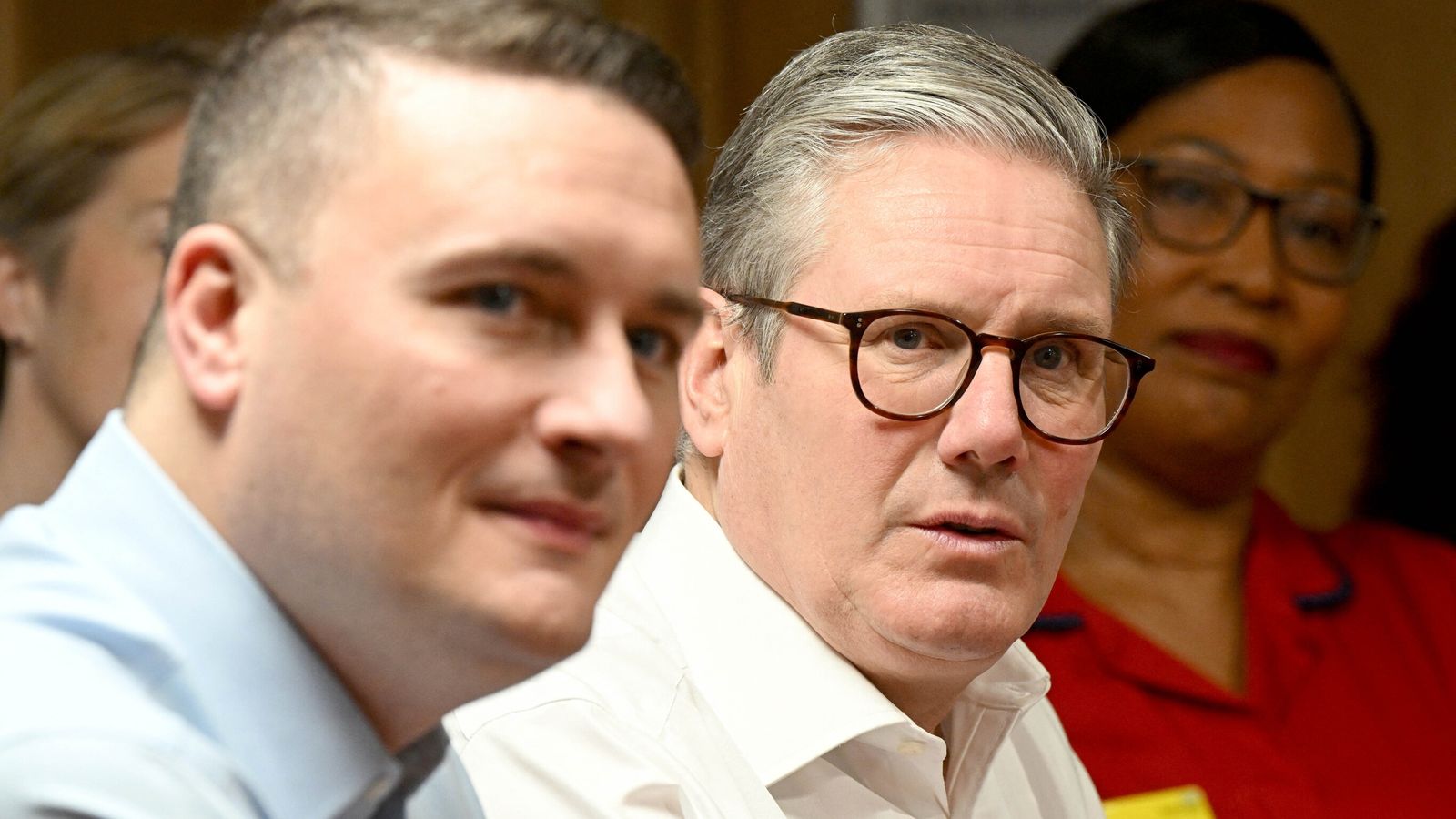David Cameron has made a shock return to government. What does it all mean?
The 57-year-old is now Rishi Sunak’s new foreign secretary, taking the role from James Cleverly, who has replaced Suella Braverman as home secretary. Here’s who’s in and who’s out.
Lots of questions have been asked after even the UK’s best political journalists admitted they didn’t see this coming.
Those questions include
How can someone become a secretary of state if they’re not even an MP? What is Rishi Sunak trying to do? What does it mean for a general election?
All those are answered here – but first, a very brief recap of the former prime minister’s political career up to this point.
June 2001
He’s elected as the MP for Witney in West Oxfordshire.
December 2005
Mr Cameron becomes leader of the Conservative Party after beating David Davis, Liam Fox and Kenneth Clarke in a leadership election.
May 2010
He becomes prime minister in a coalition government after the Conservatives join forces with Nick Clegg’s Liberal Democrats due to a hung parliament.
It’s the UK’s first coalition government in 65 years.
During this first term in power, he promises to hold a referendum on the UK’s European Union membership amid relentless ‘leave’ campaigning from then UKIP leader Nigel Farage and internal disagreement within the Conservative Party.
“It is time for the British people to have their say”, Mr Cameron says in 2013.
“It is time for us to settle this question about Britain and Europe.”
May 2015
He’s re-elected prime minister, this time at the head of a majority government.
He spent the next year trying to renegotiate the UK’s position in the European Union to offer what he said was referendum voters a choice – leave, or remain in the EU under a different relationship.
June 2016
He resigns as prime minister after UK voters make the historic decision to leave the EU.
He said the country needed “fresh leadership” after the public rejected his arguments and chose to leave by 51.9% to 48.1%.
March 2021
After speciality finance group Greensill Capital collapses, it emerges Mr Cameron was an adviser to the business, reportedly on a salary of £720,000, and had lobbied government figures on its behalf.
Read more about that scandal here
November 2023
Mr Cameron makes a shock return to government, becoming foreign secretary in a cabinet reshuffle which included the sacking of former home secretary Suella Braverman.
1. How can someone be foreign secretary if they’re not even an MP?
Faith Ridler, our political reporter, writes:
In order to be in the government, someone has to be in parliament. That means either in the Commons or the Lords.
There have been numerous examples in the past of peers being in the government – both in cabinet posts and as junior ministers.
Because Mr Cameron was not an MP, and could not be made one quickly, in order for him to join the government, he had to be made a peer.
But that means he won’t be able to appear in the Commons and will be able to escape having to face regular grillings by MPs.
He will, however, take questions in the unelected Lords – made up mostly of life peers, many of whom used to be MPs.
It means more junior ministers are likely to field questions on foreign policy matters in the Commons chamber.
Major statements will likely be made first in the Upper Chamber, or by a less senior minister in the Commons.
Mr Cameron will face questions from elected MPs only when he appears before select committees – which has already been criticised by his Labour counterpart.
Commons speaker Sir Lindsay Hoyle said he will “do everything” he can to ensure MPs can scrutinise the foreign secretary.
“This is not the first time in recent years that a cabinet minister has been appointed in the House of Lords,” he said.
“But given the gravity of the current international situation, it is especially important that this House is able to scrutinise the work of the Foreign, Commonwealth and Development Office effectively.”
2. What’s Sunak trying to do?
Our political correspondent, Tamara Cohen, writes:
One of Sunak’s supporters described it as a sign of “professionalism” after an all-too-obvious tug of war within the cabinet.
Sunak is now not thought to be at risk of a leadership challenge, with an election on the horizon, and can choose the cabinet he wants after a period of having to placate parts of the party who backed him in the leadership contest.
But the unelected Cameron comes with baggage. Most obviously, there is Brexit – having campaigned for Remain, he brought about our EU exit with all the messy consequences that dogged his successors.
Those tensions have eased within the Conservative Party but have by no means disappeared.
3. Does it signal an election earlier, or later?
Cohen adds:
The next general election will be held at a time of Rishi Sunak’s choosing – any time up to 28 January 2025.
That’s because it must be called by 17 December – five years to the day since parliament sat after the last one – and then 25 working days left to hold it.
It’s a decision made by the prime minister alone, and the calculations may change.
But an ally of David Cameron tells me his comeback as foreign secretary suggests Downing Street are not planning to go to the polls early – in May or June – saying: “It suggests they’ll wait a year. He wouldn’t want to do it for five months”.
Recent reports suggest the Conservatives have been planning for 31 October.












